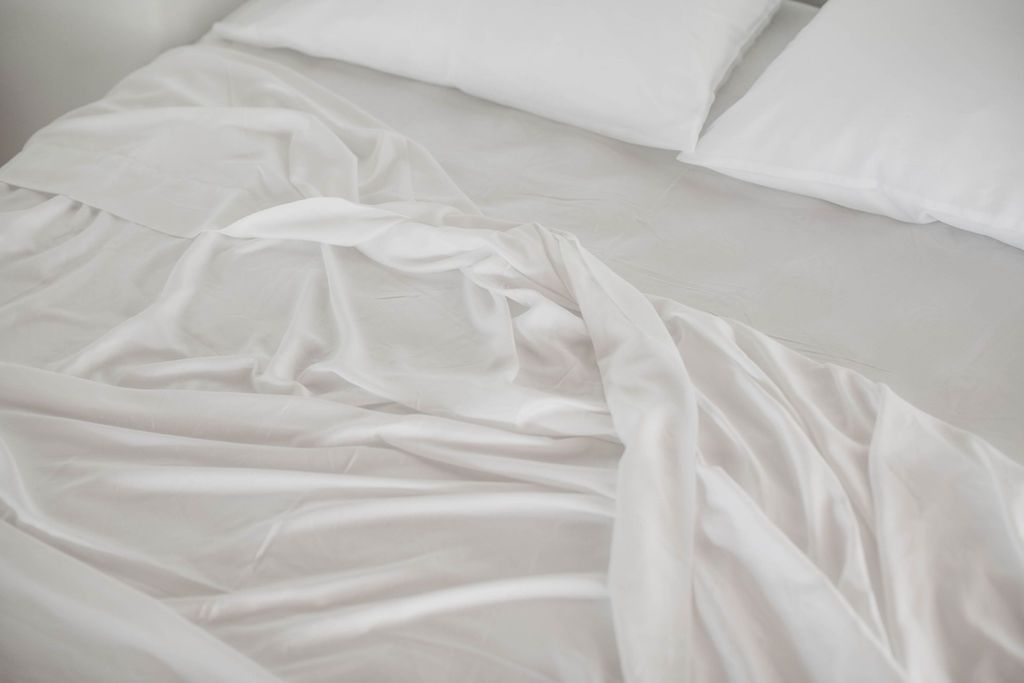Thread count has always been the buzz word as it relates to sheets. If I had even a nickle for every time someone was telling me about their high thread count sheets. I probably wouldn't be rich, but I could probably buy a coffee and cookie at Starbucks.
Does thread count actually matter when it comes to choosing your bed sheets?
Yes and no. The answer as always lies somewhere in the middle but thread count is not nearly as important as many people make it out to be.
To bring those of you with no idea about thread count up to speed, it is essentially the number of threads per square inch on a sheet.
Now how does this relate to comfort and quality?
Well conventional thinking says a higher thread counts equate to a softer sheet. Since more thread per square inch means a smoother surface and a thicker fabric that is crisp.
Does this mean a million thread count will be like sleeping on a cloud? Not exactly.
According to Consumer Reports a thread count of 200 is fine and a 400 thread may be softer but anything above is only going to provide you with a bigger hole in your wallet.
So are those 800 to 1200 thread counts even possible?
In one word. NO. Its basically nonsense.
It is impossible to fit that many threads into a square inch, not without using some creative counting that is. In the battle for market dominance some manufacturers have elected to not only count the thread, but the plies, the fiber that makes up the thread.
Preposterous I know, but using creative math can effectively QUADRUPLE the actual thread count.
How can they get away with this?
The big guys can't, but everyone else can. Bed Bath & Beyond actually got sued for misrepresenting thread counts but was able to settle for refunds, discounts, and gift cards.
On amazon right now it rampant. The amount of 1000 or 1600 series thread count is ridiculous. These are products that are being bought hundreds of times a day.
So what can I trust to know I am getting good sheets?
There are many distinctions when it comes to sheets that are not thread count; fiber is a good one to look at as it will be extremely telling of what you can expect to receive. The fact is that a 200 thread count sheet can be much much softer than its 400 thread count counterpart. You have probably heard another buzz word and that is Egyptian cotton*, the Rolls Royce of fiber, it is softer, longer and more durable than traditional cotton.
* see also pima/supima cotton
But is it really? You can go on Amazon right now and type in cotton sheets. Chances are, you will stumble across numerous Egyptian cotton sheets and all of them will claim to be genuine, saying they have the real stuff. Truth is...they don't. Egyptian Cotton might have meant something some time ago but today it is just another buzz word used to trick consumers looking for the best sheets. It is also impossible to disprove them, since Egyptian cotton is still cotton. Again manufacturers are just using these buzzwords to trick the consumer.
A great option for quality bed sheets.
Bamboo viscose is one of those options. It is fiber that is made from breaking down bamboo and it is even softer than Egyptian cotton. Bamboo actually produces a much thicker and longer thread than cotton and on top of that expands when it is hot to breathe easier and contracts when cold to keep the person underneath nice and toasty through even the coldest winters.This fiber is slowly but surely making people put down their antique cotton sheets and opt for bamboo sheets.
So what should you look at when buying sheets?
Weave, fabric, and then thread count. You can generally tell if it isn't super inflated its probably fine to trust the other components.
For a great option backed by a 100 day sleep trial check out Lasuens bamboo sheets. They are twice as soft as cotton and if you don't feel the difference you can just return them.

